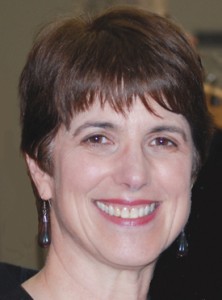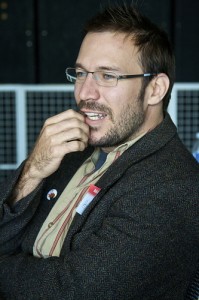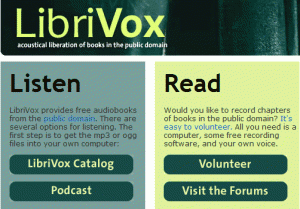Publishing Talks: David Wilk interviews Maxine Bleiweis
May 17, 2011 by David
Filed under Ebooks and Digital Publishing, PublishingTalks, Technology, The Future
 In this series of interviews, called Publishing Talks, I have been talking to book industry professionals and other smart people about the future of publishing, books, and culture. This is a period of disruption and change for all media businesses. We must wonder now, how will publishing evolve as our culture is affected by technology, climate change, population density, and the ebb and flow of civilization and economics?
In this series of interviews, called Publishing Talks, I have been talking to book industry professionals and other smart people about the future of publishing, books, and culture. This is a period of disruption and change for all media businesses. We must wonder now, how will publishing evolve as our culture is affected by technology, climate change, population density, and the ebb and flow of civilization and economics?
I hope these Publishing Talks conversations can help us understand the outlines of what is happening in the publishing industry, and how we might ourselves interact with and influence the future of publishing as it unfolds.
These interviews give people in and around the book business a chance to talk openly about ideas and concerns that are often only talked about “around the water cooler,” at industry conventions and events, and in emails between friends and they give people inside and outside the book industry a chance to hear first hand some of the most interesting and challenging thoughts, ideas and concepts being discussed by people in the book business.
Since so many of the people I’ve talked to in the Publishing Talks interviews have been in the areas of publishing and technology, I have wanted to broaden the conversation to include other perspectives. And following the conversation with Hugh McGuire about the future of libraries (a hot topic it seems, as a recent post by Seth Godin seems to indicate), it made sense to talk to a librarian who is working on the issues of access and technology from the user side of the publishing equation. I live near Westport, Connecticut, which has a fabulous library, with a myriad of public events, an incredibly active and engaged community, and a deep commitment to using technology to increase access to knowledge and information, as well as a wonderful and engaged staff.
Maxine Bleiweis is the Director of the Westport Public Library. She is a terrifically innovative manager, known for her ability to predict trends and determine ways to meet the latest “customer” needs as they emerge. Before she became director in Westport in 1998, she was director in Suffield, CT for six years and Newington, CT for 18 years.
I also noticed that she was recently named Outstanding Librarian for 2011 by the CT Library Association, so she is recognized by her peers as well as her own community.
Maxine has a great deal to say about publishing and technology, and her thoughts and ideas are well worth paying attention to. And even though the Westport Public Library does represent the beliefs and commitment of a very affluent, educated and progressive town, what this library does to enrich the intellectual and artistic life of its community is not enabled simply by having more resources than others. The principle at work here will work elsewhere – the idea of paying attention to what the community needs and doing everything possible to meet those needs is universally applicable. You can see what they are doing here.
Maxine and I had a wide ranging conversation about books, community, the future of publishing in the digital age, how libraries will handle ebooks and digital access, and how some of the controversies that have arisen in these important areas may be resolved. 
Podcast: Play in new window | Download
Publishing Talks: David Wilk interviews Hugh McGuire
May 1, 2011 by David
Filed under Ebooks and Digital Publishing, Publishing History, PublishingTalks, Technology, The Future
 In this series of interviews, called Publishing Talks, I have been talking to book industry professionals and other smart people about the future of publishing, books, and culture. This is a period of disruption and change for all media businesses. We must wonder now, how will publishing evolve as our culture is affected by technology, climate change, population density, and the ebb and flow of civilization and economics?
In this series of interviews, called Publishing Talks, I have been talking to book industry professionals and other smart people about the future of publishing, books, and culture. This is a period of disruption and change for all media businesses. We must wonder now, how will publishing evolve as our culture is affected by technology, climate change, population density, and the ebb and flow of civilization and economics?
I hope these Publishing Talks conversations can help us understand the outlines of what is happening in the publishing industry, and how we might ourselves interact with and influence the future of publishing as it unfolds.
These interviews give people in and around the book business a chance to talk openly about ideas and concerns that are often only talked about “around the water cooler,” at industry conventions and events, and in emails between friends and they give people inside and outside the book industry a chance to hear first hand some of the most interesting and challenging thoughts, ideas and concepts being discussed by people in the book business.
Hugh McGuire is a serial digital entrepreneur. There’s a great story about him and an online interview at NextMontreal, in which the focus of the conversation is a company he started a few years ago called Book Oven, aiming to build an online book publishing platform. That particular venture did not meet expectations, but it’s a great story for anyone interested in digital publishing and start-up businesses in publishing (and resulted in a very cool tool called PressBooks, that “lets you and your team easily author and output books in multiple formats including: epub, Kindle, print-on-demand-ready PDF, HTML, and inDesign-ready XML.”)
Hugh is also the founder of the outstanding free audio book LibriVox, which currently features perhaps the largest catalog of audio books drawn from the public domain. It’s a great service and operates on open source principles. In addition to LibriVox, Hugh has also started and now runs a for-profit audio book business called Iambik, which shares many principles with LibriVox except in its profit goals, which of course drives a different business model.
What prompted me to contact Hugh now is the recent and terrific guest piece he wrote called What are Libraries For? for the outstanding blog In the Library with the Leadpipe (subtitled: The murder victim? Your library assumptions. Suspects? It could have been any of us.) This piece has so much great stuff in it (and is so well written and clear), that it’s a must-read for anyone interested in the future of publishing, books and readers (and In the Library is a great discovery too).
You may not agree with all of Hugh’s assumptions, nor his conclusions (I mostly do), but what he says will make you think hard about the digital future and what it will mean to libraries and every other institution in the book to reader supply chain. I’d be happy to hear from Writerscast listeners what you think of Hugh’s article after you read it. Comments are open.
Here’s the first graph of Hugh’s essay: “Ebooks will become the dominant form of casual reading for adults at some point in the future1. When this happens, community and public libraries will face a major existential crisis, because a fundamental (perhaps the fundamental) function of community libraries—lending print books—will no longer be a fundamental demand from the community. Libraries that do not adjust will find their services increasingly irrelevant to the populations they serve.”

Podcast: Play in new window | Download
